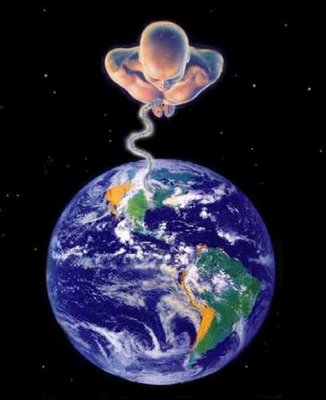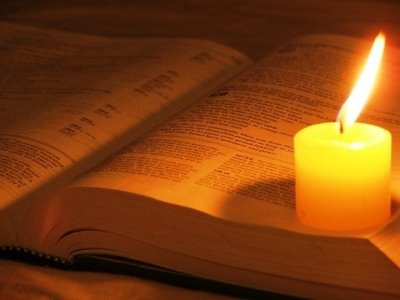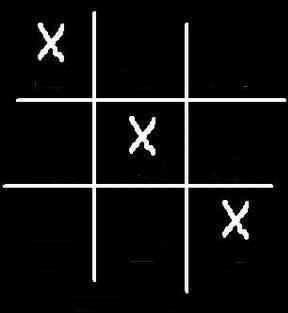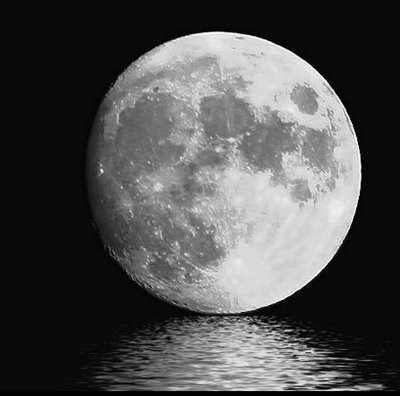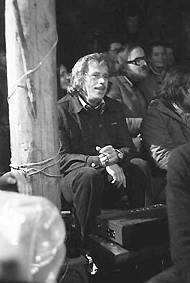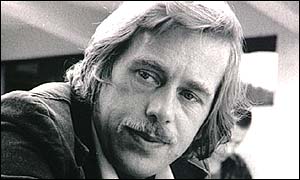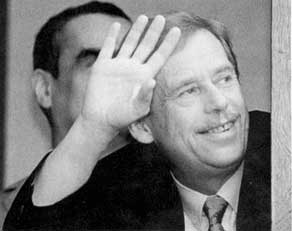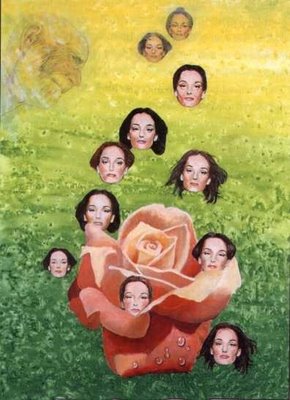30.1.07
26.1.07
~ João Cravinho
“ Politico que se deixa domesticar, que na sua consciência não vê ofensa grave à expectativa que se pôs nele, deve ser remetido para o escalão dos animais domésticos. ”
in Público, 26/01/2007
23.1.07
IT IS Getting Dangerous Out There
" (...) The new policy supports not only a Moon, Mars and beyond exploration agenda, but also responds to a post 9/11 world of terrorist actions, such as the need for intelligence-gathering internal and external to the United States.
(...)
“In this new century, those who effectively utilize space will enjoy added prosperity and security and will hold a substantial advantage over those who do not.”
The policy calls upon the Secretary of Defense to “develop capabilities, plans, and options to ensure freedom of action in space, and, if directed, deny such freedom of action to adversaries.” (...)"
11 Jan. 2007 > China Test Sparks Space Arms fears
"Standing by the new space policy the White House issued last year, a U.S. State Department official said China’s Jan. 11 test of an anti-satellite weapon in space is not cause to open negotiations on a new treaty that would place limits on what countries can do in space.
“We do not think there is an arms race in space."
(...)
[The US State Dept.] official said the space policy clearly states that the United States will oppose the development of new legal regimes or other restrictions that seek to prohibit or limit U.S. access to, or use of, space and that no change in that policy is warranted.
“Arms control is not a viable solution for space. For example, there is no agreement on how to define space weapon. Without a definition you are left with loopholes and meaningless limitations that endanger national security. No arms control is better than bad arms control,” the State Department official said.
Gordon Johndroe, the National Security Council’s (NSC) chief spokesman, said in a statement provided by an NSC press official Jan. 18 that the Chinese used a ground-based, medium-range ballistic missile to knock out an aging Chinese weather satellite orbiting the Earth at an altitude of about 537 miles (865 kilometers).
(...)
The State Department official also said the United States received no advance notice from the Chinese. “We have expressed our concern to the Chinese and asked them to clarify their intentions in seeking to develop a ballistic-missile-based anti-satellite capability. ... The Chinese have not responded to our expressions of concern.”
(...)
“This is an enormous mess they [the Chinese] have created. There is no excuse for what is a reckless, stupid and self-defeating decision on their part,” Lewis said in a telephone interview Jan. 17.
[The Executive Director of Harvard’s Managing the Atom Project] Lewis said a U.S. Air Force database of objects in orbit showed the Chinese FY-11 weather satellite intact on Jan. 11, but that the data a day later “showed about 40 pieces of debris, which is probably just the tip of the iceberg.” Lewis said.
(...)
Arthur Ding, a research fellow at the National Chengchi University’s Institute of International Relations in Taiwan, said China’s motivation is likely rooted in their perception of the new U.S. space policy.
“The perception is that the U.S. is attempting to dominate space and the U.S. refuses any space-related arms control,” Ding said. “Further, China suspects that the U.S. is attempting to militarize space in the future.” A possible consequence is that space-related arms control is likely to be added to U.S.-China dialogue in the future,” he said. (...) "
Excerts via Space.com
Personal Addendum
It's Official: The Weaponization of Space is ON
22.1.07
LONG INTENDED CALL
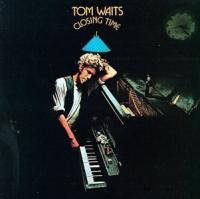 Closing Time (1973) by Tom Waits
Closing Time (1973) by Tom WaitsOperator, number, please: it's been so many years
Will she remember my old voice while I fight the tears?
Hello, hello there, is this Martha? this is old Tom Frost,
And I am calling long distance, don't worry 'bout the cost.
'Cause it's been forty years or more, now Martha please recall,
Meet me out for coffee, where we'll talk about it all.
And those were the days of roses, poetry and prose
And Martha all I had was you and all you had was me.
There was no tomorrows, we'd packed away our sorrows
And we saved them for a rainy day.
And I feel so much older now, and you're much older too,
How's your husband? and how's the kids?
You know that I got married too?
Luck that you found someone to make you feel secure,
'Cause we were all so young and foolish, now we are mature.
And those were the days of roses, poetry and prose
And Martha all I had was you and all you had was me.
There was no tomorrows, we'd packed away our sorrows
And we saved them for a rainy day.
And I was always so impulsive, I guess that I still am,
And all that really mattered then was that I was a man.
I guess that our being together was never meant to be.
And Martha, Martha, I love you can't you see?
And those were the days of roses, poetry and prose
And Martha all I had was you and all you had was me.
There was no tomorrows, we'd packed away our sorrows
And we saved them for a rainy day.
And I remember quiet evenings trembling close to you...
20.1.07
Há Quem Ainda Não Tenha Discernido O Demais Elementar...
nem Uns para os Outros
Existimos entre uma miríade de estrelas
E Pensamos a Anos-Luz -Interior Uns dos Outros
 Photo Credit:NASA/ESA Hubble Space Telescope
Photo Credit:NASA/ESA Hubble Space Telescope17.1.07
Tirem-me deste filme !
12.1.07
5.1.07
4.1.07
~ Vasco Pulido Valente
"Há vinte e cinco anos que me ocupo na actividade anormal, solitária e finalmente frustrante de escrever. É o género de extravio pelo qual não se pede desculpa e que nem para o próprio, sobretudo para o próprio, exige ou tolera qualquer justificação. Quem escreve, como modo de vida, postula, tem de postular, a bondade intrínseca do acto de escrever. Mais do que isso, visto que se trata de uma profissão mal remunerada e de pouco prestigio social, quem escreve tem de se imaginar revestido por uma graça única, que o põe à parte e acima das criaturas vulgares. Sem uma arrogância intelectual e a convicção intima mas devastadora da sua superioridade, nenhuma força no mundo o arrastaria para a frente do papel em branco e o faria pacientemente fabricar filas e filas de palavras, com um fervor maníaco que aplicado a objecto menos inofensivo o conduziria à cadeia ou à manufactura terapêutica de cestos.
Ao contrario do que julgam os amadores, os verdadeiros profissionais de escrever nunca são assaltados pelas célebres 'dúvidas e interrogações' sobre o valor e a utilidade dos seus escritos. A sombra de uma dúvida, a longínqua ameaça de uma interrogação impediriam o trabalho regular e metódico, indispensável ao pagamento da hipoteca da casa, da educação, dos filhos e das contas dos restaurantes. Nós, infelizmente, não andamos aqui para nos divertir ..."
Balanço e contas, in Grande Reportagem, nº 6, 11 Janeiro 1985
via Almocreve das Petas
2.1.07
The New Year's Speech That Made Me Cry. TWICE.
“People, your government has returned to you!”
As it happens I was on the outskirts of Praha, listened to his words on the radio and hereby confess to have cried - just like all other Czechs did.
Back in Praha, I returned to his local Pub and celebrated among his fellow intellectuals. Another privelege indeed, and yes, those were very special days as History was being made before my own eyes whilst red roses sent by Coimbra's University Students Union were being hand-distributed to all citizens in the streets of Praha...
I am still moved by that speech, hence this second round of tears.
Funny to have discovered that Havel and I (and Geldof) share the same date birth, albeit in a different year, which may partly explain (?) for my empathy.
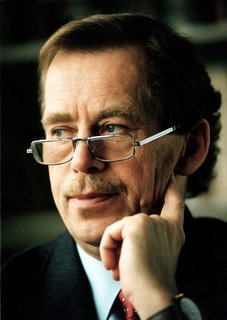
My dear fellow citizens,
For forty years you heard from my predecessors on this day different variations on the same theme: how our country was flourishing, how many million tons of steel we produced, how happy we all were, how we trusted our government, and what bright perspectives were unfolding in front of us.
I assume you did not propose me for this office so that I, too, would lie to you.
Our country is not flourishing. The enormous creative and spiritual potential of our nations is not being used sensibly. Entire branches of industry are producing goods that are of no interest to anyone, while we are lacking the things we need. A state which calls itself a workers' state humiliates and exploits workers. Our obsolete economy is wasting the little energy we have available. A country that once could be proud of the educational level of its citizens spends so little on education that it ranks today as seventy-second in the world. We have polluted the soil, rivers and forests bequeathed to us by our ancestors, and we have today the most contaminated environment in Europe. Adults in our country die earlier than in most other European countries.
Allow me a small personal observation. When I flew recently to Bratislava, I found some time during discussions to look out of the plane window. I saw the industrial complex of Slovnaft chemical factory and the giant Petr'alka housing estate right behind it. The view was enough for me to understand that for decades our statesmen and political leaders did not look or did not want to look out of the windows of their planes. No study of statistics available to me would enable me to understand faster and better the situation in which we find ourselves.
But all this is still not the main problem.
The worst thing is that we live in a contaminated moral environment.
We fell morally ill because we became used to saying something different from what we thought.
We learned not to believe in anything, to ignore one another, to care only about ourselves.
Concepts such as love, friendship, compassion, humility or forgiveness lost their depth and dimension, and for many of us they represented only psychological peculiarities, or they resembled gone-astray greetings from ancient times, a little ridiculous in the era of computers and spaceships.
Only a few of us were able to cry out loudly that the powers that be should not be all-powerful and that the special farms, which produced ecologically pure and top-quality food just for them, should send their produce to schools, children's homes and hospitals if our agriculture was unable to offer them to all.
The previous regime - armed with its arrogant and intolerant ideology - reduced man to a force of production, and nature to a tool of production. In this it attacked both their very substance and their mutual relationship.
It reduced gifted and autonomous people, skillfully working in their own country, to the nuts and bolts of some monstrously huge, noisy and stinking machine, whose real meaning was not clear to anyone. It could not do more than slowly but inexorably wear out itself and all its nuts and bolts.
When I talk about the contaminated moral atmosphere, I am not talking just about the gentlemen who eat organic vegetables and do not look out of the plane windows. I am talking about all of us. We had all become used to the totalitarian system and accepted it as an unchangeable fact and thus helped to perpetuate it.
In other words, we are all - though naturally to differing extents - responsible for the operation of the totalitarian machinery. None of us is just its victim. We are all also its co-creators.
Why do I say this? It would be very unreasonable to understand the sad legacy of the last forty years as something alien, which some distant relative bequeathed to us. On the contrary, we have to accept this legacy as a sin we committed against ourselves.
If we accept it as such, we will understand that it is up to us all, and up to us alone to do something about it.
We cannot blame the previous rulers for everything, not only because it would be untrue, but also because it would blunt the duty that each of us faces today: namely, the obligation to act independently, freely, reasonably and quickly.
Let us not be mistaken: the best government in the world, the best parliament and the best president, cannot achieve much on their own. And it would be wrong to expect a general remedy from them alone.
Freedom and democracy include participation and therefore responsibility from us all.
If we realize this, then all the horrors that the new Czechoslovak democracy inherited will cease to appear so terrible. If we realize this, hope will return to our hearts.
In the effort to rectify matters of common concern, we have something to lean on.
The recent period - and in particular the last six weeks of our peaceful revolution - has shown the enormous human, moral and spiritual potential, and the civic culture that slumbered in our society under the enforced mask of apathy.
Whenever someone categorically claimed that we were this or that, I always objected that society is a very mysterious creature and that it is unwise to trust only the face it presents to you.
I am happy that I was not mistaken. Everywhere in the world people wonder where those meek, humiliated, skeptical and seemingly cynical citizens of Czechoslovakia found the marvelous strength to shake the totalitarian yoke from their shoulders in several weeks, and in a decent and peaceful way. And let us ask: Where did the young people who never knew another system get their desire for truth, their love of free thought, their political ideas, their civic courage and civic prudence? How did it happen that their parents -- the very generation that had been considered lost -- joined them? How is it that so many people immediately knew what to do and none needed any advice or instruction?
I think there are two main reasons for the hopeful face of our present situation.
First of all, people are never just a product of the external world; they are also able to relate themselves to something superior, however systematically the external world tries to kill that ability in them.
Secondly, the humanistic and democratic traditions, about which there had been so much idle talk, did after all slumber in the unconsciousness of our nations and ethnic minorities, and were inconspicuously passed from one generation to another, so that each of us could discover them at the right time and transform them into deeds.
We had to pay, however, for our present freedom.
Many citizens perished in jails in the 1950s, many were executed, thousands of human lives were destroyed, hundreds of thousands of talented people were forced to leave the country. Those who defended the honor of our nations during the Second World War, those who rebelled against totalitarian rule and those who simply managed to remain themselves and think freely, were all persecuted.
We should not forget any of those who paid for our present freedom in one way or another.
Independent courts should impartially consider the possible guilt of those who were responsible for the persecutions, so that the truth about our recent past might be fully revealed.
We must also bear in mind that other nations have paid even more dearly for their present freedom, and that indirectly they have also paid for ours. The rivers of blood that have flowed in Hungary, Poland, Germany and recently in such a horrific manner in Romania, as well as the sea of blood shed by the nations of the Soviet Union, must not be forgotten. First of all because all human suffering concerns every other human being. But more than this, they must also not be forgotten because it is these great sacrifices that form the tragic background of today's freedom or the gradual emancipation of the nations of the Soviet Bloc, and thus the background of our own newfound freedom. Without the changes in the Soviet Union, Poland, Hungary, and the German Democratic Republic, what has happened in our country would have scarcely happened. And if it did, it certainly would not have followed such a peaceful course.
The fact that we enjoyed optimal international conditions does not mean that anyone else has directly helped us during the recent weeks. In fact, after hundreds of years, both our nations have raised their heads high of their own initiative without relying on the help of stronger nations or powers.
It seems to me that this constitutes the great moral asset of the present moment.
This moment holds within itself the hope that in the future we will no longer suffer from the complex of those who must always express their gratitude to somebody. It now depends only on us whether this hope will be realized and whether our civic, national, and political self-confidence will be awakened in a historically new way.
Self-confidence is not pride. Just the contrary: only a person or a nation that is self-confident, in the best sense of the word, is capable of listening to others, accepting them as equals, forgiving its enemies and regretting its own guilt. Let us try to introduce this kind of self-confidence into the life of our community and, as nations, into our behavior on the international stage. Only thus can we restore our self-respect and our respect for one another as well as the respect of other nations.
Our state should never again be an appendage or a poor relative of anyone else.
It is true that we must accept and learn many things from others, but we must do this in the future as their equal partners, who also have something to offer.
Our first president wrote: "Jesus, not Caesar." In this he followed our philosophers Chelčického and KomenskéhoI dare to say that we may even have an opportunity to spread this idea further and introduce a new element into European and global politics.
Our country, if that is what we want, can now permanently radiate love, understanding, the power of the spirit and of ideas. It is precisely this glow that we can offer as our specific contribution to international politics.
Masaryk* based his politics on morality. Let us try, in a new time and in a new way, to restore this concept of politics. Let us teach ourselves and others that politics should be an expression of a desire to contribute to the happiness of the community rather than of a need to cheat or rape the community. Let us teach ourselves and others that politics can be not simply the art of the possible, especially if this means the art of speculation, calculation, intrigue, secret deals and pragmatic maneuvering, but that it can also be the art of the impossible, that is, the art of improving ourselves and the world.
We are a small country, yet at one time we were the spiritual crossroads of Europe. Is there a reason why we could not again become one? Would it not be another asset with which to repay the help of others that we are going to need?
Our homegrown Mafia, those who do not look out of the plane windows and who eat specially fed pigs, may still be around and at times may muddy the waters, but they are no longer our main enemy. Even less so is our main enemy any kind of international Mafia. Our main enemy today is our own bad traits: indifference to the common good, vanity, personal ambition, selfishness, and rivalry. The main struggle will have to be fought on this field.
There are free elections and an election campaign ahead of us. Let us not allow this struggle to dirty the so-far clean face of our gentle revolution. Let us not allow the sympathies of the world, which we have won so fast, to be equally rapidly lost through our becoming entangled in the jungle of skirmishes for power. Let us not allow the desire to serve oneself to bloom once again under the stately garb of the desire to serve the common good. It is not really important now which party, club or group prevails in the elections. The important thing is that the winners will be the best of us, in the moral, civic, political and professional sense, regardless of their political affiliations. The future policies and prestige of our state will depend on the personalities we select, and later, elect to our representative bodies.
My dear fellow citizens!
Three days ago I became the president of the republic as a consequence of your will, expressed through the deputies of the Federal Assembly. You have a right to expect me to mention the tasks I see before me as president.
The first of these is to use all my power and influence to ensure that we soon step up to the ballot boxes in a free election, and that our path toward this historic milestone will be dignified and peaceful.
My second task is to guarantee that we approach these elections as two self-governing nations who respect each other's interests, national identity, religious traditions, and symbols. As a Czech who has given his presidential oath to an important Slovak who is personally close to him, I feel a special obligation -- after the bitter experiences that Slovaks had in the past -- to see that all the interests of the Slovak nation are respected and that no state office, including the highest one, will ever be barred to it in the future.
My third task is to support everything that will lead to better circumstances for our children, the elderly, women, the sick, the hardworking laborers, the national minorities and all citizens who are for any reason worse off than others. High-quality food or hospitals must no longer be a prerogative of the powerful; they must be available to those who need them the most.
As supreme commander of the armed forces I want to guarantee that the defensive capability of our country will no longer be used as a pretext for anyone to stand in the way of courageous peace initiatives, the reduction of military service, the establishment of alternative military service and the overall humanization of military life.
In our country there are many prisoners who, though they may have committed serious crimes and have been punished for them, have had to submit -- despite the goodwill of some investigators, judges and above all defense lawyers -- to a debased judiciary process that curtailed their rights. They now have to live in prisons that do not strive to awaken the better qualities contained in every person, but rather humiliate them and destroy them physically and mentally.
In a view of this fact, I have decided to declare a relatively extensive amnesty.
At the same time I call on the prisoners to understand that forty years of unjust investigations, trials and imprisonments cannot be put right overnight, and to understand that the changes that are being speedily prepared still require time to implement. By rebelling, the prisoners would help neither society nor themselves. I also call on the public not to fear the prisoners once they are released, not to make their lives difficult, to help them, in the Christian spirit, after their return among us to find within themselves that which jails could not find in them: the capacity to repent and the desire to live a respectable life.
My honorable task is to strengthen the authority of our country in the world.
I would be glad if other states respected us for showing understanding, tolerance and love for peace.
I would be happy if Pope John Paul II and the Dalai Lama of Tibet could visit our country before the elections, if only for a day.
I would be happy if our friendly relations with all nations were strengthened.
I would be happy if we succeeded before the elections in establishing diplomatic relations with the Vatican and Israel. I would also like to contribute to peace by briefly visiting our close neighbors, the German Democratic Republic and the Federal Republic of Germany. Neither shall I forget our other neighbors -- fraternal Poland and the ever-closer countries of Hungary and Austria.
In conclusion, I would like to say that I want to be a president who will speak less and work more. To be a president who will not only look out of the windows of his airplane but who, first and foremost, will always be present among his fellow citizens and listen to them well.
You may ask what kind of republic I dream of.
Let me reply: I dream of a republic independent, free, and democratic, of a republic economically prosperous and yet socially just; in short, of a humane republic that serves the individual and that therefore holds the hope that the individual will serve it in turn. Of a republic of well-rounded people, because without such people it is impossible to solve any of our problems -- human, economic, ecological, social, or political.
The most distinguished of my predecessors opened his first speech with a quotation from the great Czech educator Komenského. Allow me to conclude my first speech with my own paraphrase of the same statement:
* Tom Garrigue Masaryk (1850-1937), Czech statesman and philosopher, the first president of Czechoslovakia.
In 1975, Havel wrote a letter to then Czechoslovakian president Dr. Gustav Husak in which he stated, “…you and your government have chosen the easy way out for yourselves and the most dangerous road for society.” Havel was arrested and jailed for the article, but illegal copies made their way around Central Europe, igniting fledgling dissident movements.
In 1977, Havel and other artists and dissidents produced a manifesto known as Charter 77. In it the authors demanded that the Czechoslovakian government respect the basic human rights of its people. But before it could be distributed, Havel and his cohorts were arrested. Undaunted, Havel wrote “The Power of the Powerless” in 1978. It is perhaps his most famous and influential essay. In it he encourages everyday citizens to stand together against totalitarian regimes by refusing, en masse, to obey them. The essay inflamed the Soviet regime and Havel was again arrested.
In 1979, Havel cofounded The Committee for the Defense of the Unjustly Persecuted and was, once again, arrested. All told, Havel spent nearly five years in prison during the years from 1977 to 1989.
In 1989, the tide at long last turned against Czechoslovakia’s Soviet government. The Civic Forum, a group that Havel had helped found, had gained the support of millions of Czechs. Their peaceful protests were too massive to be denied. The Soviet-backed regime stepped down, and on December 29, Vaclav Havel was elected interim president. In 1990, he was re-elected, presiding over a new Czechoslovakian parliament.
